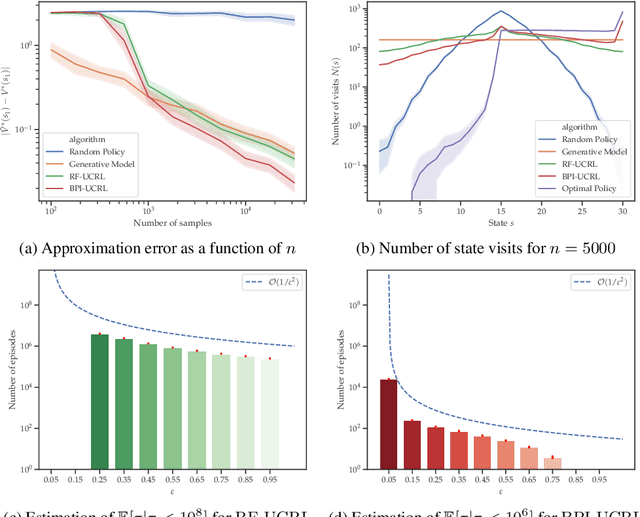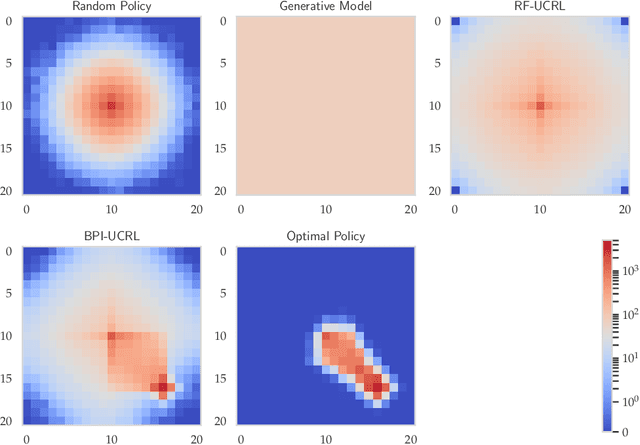Adaptive Reward-Free Exploration
Paper and Code
Jun 11, 2020


Reward-free exploration is a reinforcement learning setting recently studied by Jin et al., who address it by running several algorithms with regret guarantees in parallel. In our work, we instead propose a more adaptive approach for reward-free exploration which directly reduces upper bounds on the maximum MDP estimation error. We show that, interestingly, our reward-free UCRL algorithm can be seen as a variant of an algorithm of Fiechter from 1994, originally proposed for a different objective that we call best-policy identification. We prove that RF-UCRL needs $\mathcal{O}\left(({SAH^4}/{\varepsilon^2})\ln(1/\delta)\right)$ episodes to output, with probability $1-\delta$, an $\varepsilon$-approximation of the optimal policy for any reward function. We empirically compare it to oracle strategies using a generative model.
 Add to Chrome
Add to Chrome Add to Firefox
Add to Firefox Add to Edge
Add to Edge